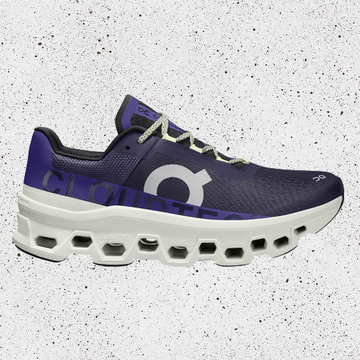Improving your health could be as simple as a few tiny tweaks to your diet, according to Bupa UK dietician Rachael Eden. She reveals the 15 healthy food swaps you can easily make…
1. Swap white pasta for whole wheat
If pasta forms a staple part of your diet, don't despair - there's no need to ditch it altogether. "Whole wheat pasta is higher in fibre, and contains more vitamin E, B vitamins and antioxidants than white," explains Rachael. "Another smart option is 'courgetti' (spiralized courgette) or 'boodles' (pasta made from butternut squash) to boost your vegetable intake. But remember, carbohydrates are important, so don't make them the enemy."
2. Swap plain jacket potatoes for sweet potatoes
It's an easy, cheap and tasty meal, but there's a way to make baked potatoes healthier, too. "Eating sweet potatoes means you're still getting those essential carbs, but this way they count as one of your five-a-day, unlike regular potatoes which are a starchy food," says Rachael. "Just make sure you keep the skin on when cooking them for that extra boost of fibre."
3. Swap white rice for brown or 'cauli-rice'
"There's nothing wrong with white rice, but brown rice is better for you because it has more fibre than white," explains Rachael. "Cauliflower rice is another great option if you want to reduce calorie intake and up your veg count, too." (Plus, packets are available in most supermarkets for around £1.50 if you're too short on time to make your own.)
4. Make your own porridge oats instead of pre-packed versions, or granola
When we're in a rush it's tempting to go for the quick and easy option, but according to Rachael, it pays to steer clear. "When you make your own porridge, you're in control of what's going into it – whether you have it with milk or water, and how much else you're adding - like nuts, fruit or honey. Pre-packaged options often include higher levels of salt, sugars and flavours which are better to avoid if you can. Similarly, granola often has added sugar which can detract from the health benefits of the original ingredients."
5. Swap fruit juice for the fruit itself
Next time you reach for a glass of OJ, it might be worth a re-think. "Fruit juice is high in natural sugar, and it's missing the fibre that the fruit provides," says Rachael. "Drinking a glass of orange juice means the fruit's sugars are more readily available and more easily absorbed by the body. The other thing to consider is that no matter how much fruit juice you drink in a day, it still only counts as one of your five-a-day (even if you're drinking different types) so it's definitely not worth glugging back pints of it."
6. Swap white bread for rye or wholemeal
"Wholemeal, rye or seeded bread is much better for you than white, thanks to the high fibre levels," explains Rachael. "The way wholemeal or rye breads are digested also means that the sugar, which turns into energy, is released into the bloodstream much more slowly than in white bread, too."
7. Swap sugary energy drinks for coffee
Coffee might not sound like the healthiest choice, but they beat energy drinks every time, says Rachael. "Energy drinks are high in sugar and usually extremely high in caffeine. Coffee gets a bad rep but it's not necessarily a bad choice, it just depends on the size and type you're drinking - portion control is key! If you're brewing your own, stick to a small cup and try not to drink more than 3-4 cups of caffeinated drinks a day (this includes tea and fizzy drinks with caffeine). Large amounts of caffeine can increase blood pressure."
8. Swap shop-bought salad dressing for homemade
Making your own salad dressing might sound like a faff, but the reality is it takes just a few minutes and most are far healthier (a non-creamy version keeps for a couple of weeks in the fridge, too). "If you make your own dressing, it's much easier to manage what's going into it," says Rachael. "A base of olive oil and vinegar is tasty, and you can add whatever you like to mix it up or add more nutrients – anything from garlic and lemon, to seeds, nuts and herbs. Vinegar or lemon dressings are healthier than creamy shop-bought dressings which can be high in fat and calories, with little nutritional value." A homemade French dressing needs just a few ingredients - olive oil, red wine vinegar, Dijon mustard, garlic, and salt and pepper – easy!
9. Swap low-fat yoghurt for Greek
Tweaking your choice of yoghurt can have big nutritional benefits, says Rachael. "Greek yoghurt is naturally lower in fat and sugar than most regular yoghurts, and some brands have extra protein too, which will keep you fuller for longer. Avoid low-fat, flavoured yoghurts - they tend to contain a lot of added sugars and flavours. Instead, opt for a plain version and add a few nuts or fruit and a bit of honey, if you like it sweeter."
10. Swap butter for olive oil margarine
"An olive oil-based spread is healthier than butter, because it's a healthy unsaturated fat," explains Rachael. "Butter is a saturated fat which can increase our 'bad' cholesterol levels, so if you love slathering it on your toast every morning, it might be worth buying an olive oil margarine to use now and then, too."
11. Swap crisps for popcorn
Popcorn sounds like a junk food, but it's actually a healthier option to crisps, says Rachael. "Popcorn is wholegrain and lower in fat than crisps, but because it's so light, it's really easy to eat a lot quite quickly – so be careful! Try to avoid adding extras like huge doses of salt or sugar, as these additions can quickly detract from the benefit of switching in the first place."
12. Swap mashed potato for carrot or swede mash
Worried you're not hitting your five-a-day? Swapping plain mashed potato for a 50/50 potato and carrot mix (or swede, if you prefer) is an easy way to up your vitamin intake. "You're adding extra beta carotene (which makes vitamin A), vitamin K, potassium and antioxidants," says Rachael. "The potatoes mean you're still getting a healthy source of B vitamins and vitamin C, too."
13. Swap pork sausages for chicken sausages
"Chicken sausages tend to be lower in saturated fat than pork, and they're a smart way of lowering your intake of red meat. Research has shown that a higher intake of red meat can be linked with certain types of cancers and cardiovascular diseases, so if you're eating them on a regular basis, try chicken sausages too (Heck's cost around £2 in supermarkets)."
14. Swap cheddar for cottage or goat's cheese
Love cheddar? Try adding a little variation, says Rachael. "I'd always go for a softer cheese - cottage cheese, crème fraîche and quark are all great sources of calcium that aren't too high in fat. Hard cheese, like cheddar, is high in fat and calories, so it's important to keep an eye on how much of it you're eating."
15. Swap fried eggs for boiled or poached
A weekend breakfast wouldn't be the same without eggs, but you can make them healthier by ditching the butter or oil. "If you have a good non-stick pan, you can actually dry-fry eggs," explains Rachael. "It's the oil or butter in the pan that makes the difference, so try that, or stick to poaching or boiling for breakfast."














